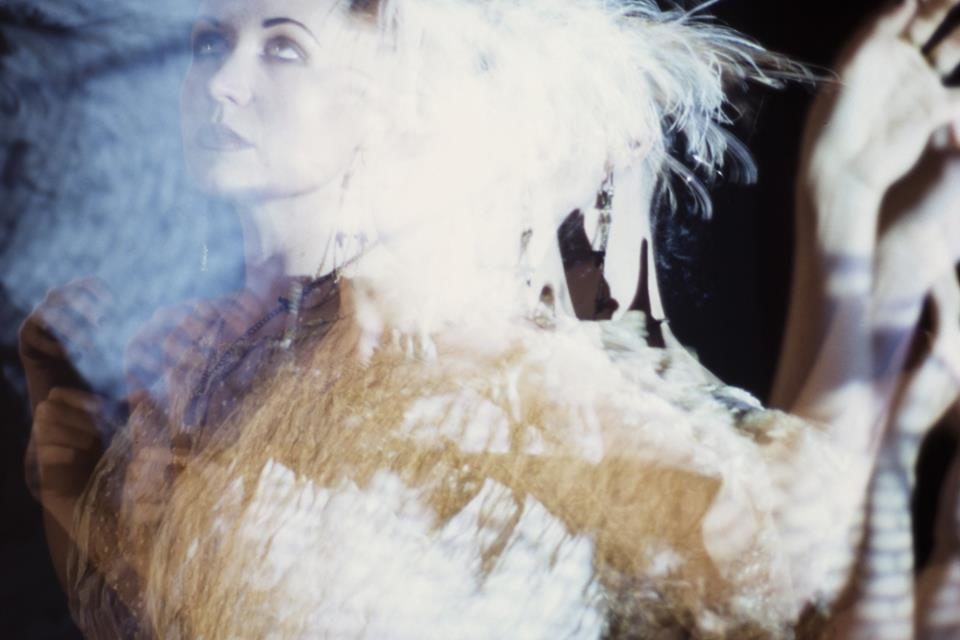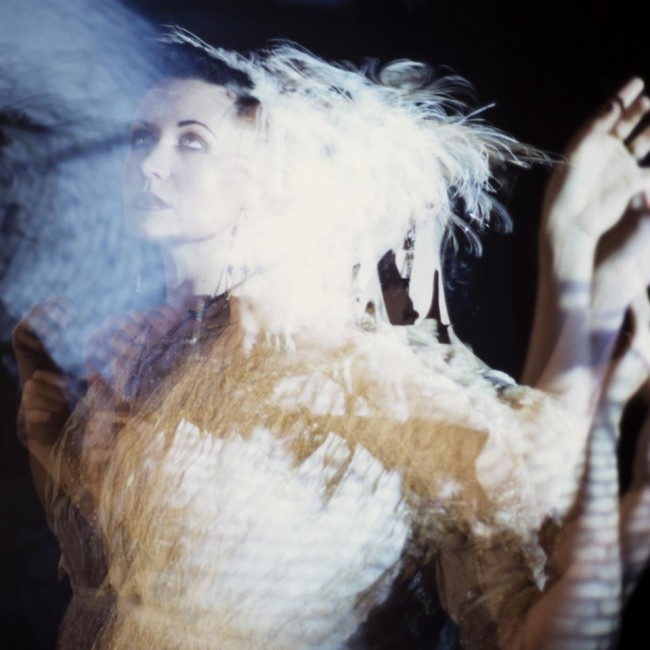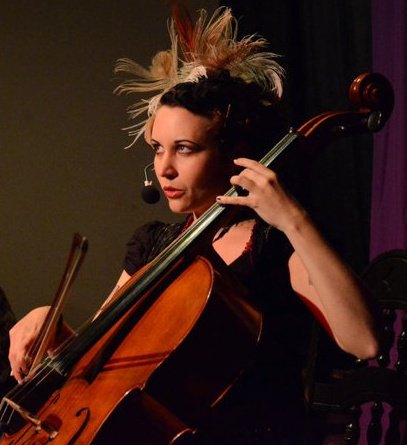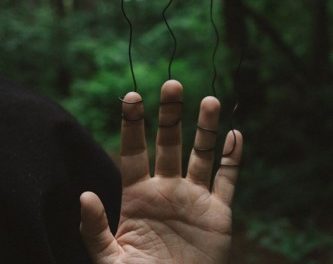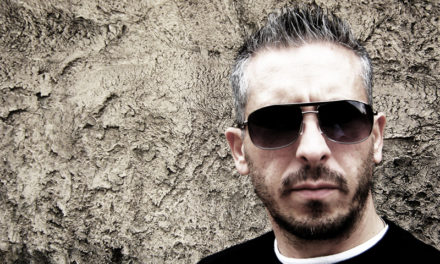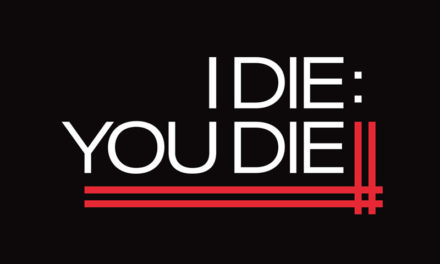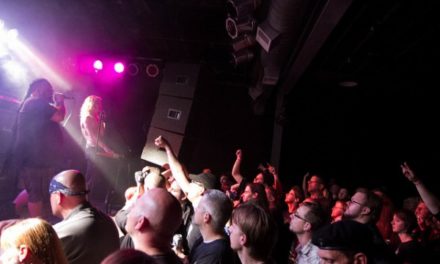“My biggest struggle over the last few years has been to live by what Albert Camus said: “The only way to deal with an unfree world is to become so absolutely free that your very existence is an act of rebellion.”
Erica Mulkey is a beacon in the dark for would-be DIY musicians. With seven self-produced albums out under the auspices of her Unwoman project, Mulkey’s career has blossomed to a point where the Kickstarter for her recent LP The Fires I Started more than tripled its goal based purely on the support of the devoted fanbase she’s grown via playing shows, attending Steampunk conventions and collaborating with musicians as diverse as Caustic and Voltaire. I Die: You Die contributor Kathleen Chausse spoke with the cellist and programmer about new forms of patronage, politics and the realities of making a living from music.
ID:UD: You have a background in classical music, yet you also have an element of electronic in your music. Can you comment on how you make them blend together so well?
Erica: Practice, I guess? I really think the mixing on my first two albums was pretty rough. It’s not easy to blend those aspects but I had this vision early on of cello with electronics – inspired by everything from synthpop to experimental industrial to, obviously, classical – with pop-ish vocals. I kept to more-or-less the same aim over the years and I feel I finally hit my stride on Casualties. One thing that helped was working in more organic sounds in my sequenced tracks. And having worked as a ringtone producer for a few years was really helpful for honing my production skills, too, because that medium had such strict limitations.
ID:UD: From the looks of live videos your shows sometimes include a belly dancer; how does this add to your show and compare to your shows without one?
Erica: Well, I like to think, and I’ve been told, that I can command an audience with just myself and my cello. But adding a more visual element can be very powerful especially when I’m sitting down with my cello and can’t really move around. I’ve recently started playing electric cello standing up so now most of my live sets have the vibe of solo rockstar, which is better than seated cellist, but still not as visually compelling as a full band. I love when I play local shows and dancers come to dance with me; it’s because they want to, because they really like my music, which is such a powerful connection to me, to interpret my songs into movement. And even though a lot of my songs are about physical things like sex, they’re usually a pretty analytical view of them, so it’s wonderful to bring the songs back into the body for those shows.
ID:UD: You’ve worked with some radical circles such as Graceless and had a strong tone of radical themes in your early work. How have you keep these ideals in your music?
Erica: I basically feel like I do so little to be politically active – I only participate in demonstrations every few months or so – the least I can do is speak truth to power in the voice that I feel comfortable using. My tone has changed a lot, though, since songs like “Freedom From Religion” and “In Gilead.” I took a few steps back from the brash, harsh stance – though I am still proud of those works coming from an outspoken young woman – and try to sing more from a personal perspective rather than grand overgeneralized statements.
An early review once held “Freedom From Religion” up to “Strange Fruit.” Of course it didn’t compare favorably to possibly the greatest protest song ever! But I took their point – maybe I was capable of morecompelling subtlety.
My biggest struggle over the last few years has been to live by what Albert Camus said: “The only way to deal with an unfree world is to become so absolutely free that your very existence is an act of rebellion.” And, similarly, Orwell: “In a time of deceit telling the truth is a revolutionary act.” So my goal is to be honest, and free, in my songs and my life. My song “For The Killers” is especially about this.
“I am thinking about my career relentlessly, which is actually pretty fulfilling…”
ID:UD: In recent years, you’re become a full time musician. Can you go over the transition from the workplace to becoming a musician & the sacrifices made?
Erica: Yes, I went full-time Feb 2, 2010, and the last two and a half years have seen a lot of growth for me. I started saving money really hard during my tour with Voltaire in April 2009, which wasn’t a huge moneymaker but it was a good start and it assured me that I could handle the lifestyle. The last ten months of my day job were really tough because I lived as if I had no money and I also had no time, looking forward to the day my time would be my own. But of course I kept working on songs all the time and playing weekend gigs when I could.
The moment I gave notice at my job was, coincidentally, the moment a fan was pushing my first kickstarter – for my album Casualties – over the top. These new tools, kickstarter, bandcamp, and the little USB drives I sell with my entire discography in addition to CDs were all huge enablers of my full-time musician-hood. After the first year I realized if I weren’t paying San Francisco rent I’d be breaking even, and my parents had always made it clear I was welcome back, so I moved in with my parents in an East Bay suburb.
I never made a ton of money at my day job but I definitely have to be more careful now – a new custom corset is now something I plan intently rather than casually purchase; I can’t buy new instruments unless I know I’m really going to use them; I don’t go out unless it’s a boost for my well-being or career, which it often is. I am thinking about my career relentlessly, which is actually pretty fulfilling and not something I’ll ever complain about.
ID:UD: Amanda Palmer has been something of a fairy godmother to you in your kickstarter projects. How did this come to be?
Erica: True story: I was doing a ustream show (back before ustream because a useless POS) and maybe thirty fans were watching. The rapper Drake tuned in to my channel and said something slightly inappropriate about my cleavage. Not enough to get him banned, but it inspired me to cover Amanda Palmer’s “Ampersand” because of its line about catcalling. My mom tweeted at @amandapalmer, AFP tuned in and mentioned it on twitter, and by the end of the song I had 1,000 people watching me. And still had no idea who Drake was. So I kept playing for another hour and a lot of those people ended up as steady fans.
I didn’t want to bother AFP for further help and I kinda fell off her radar, but two years later, she found me again for my last kickstarter, for The Fires I Started, and partly thanks to her it got over 300% funded. Then, through unrelated connections with Classical Revolution, I got to be a part of her string section at her recent shows in SF and finally meet her in person. She and all her entourage are angels of badass positivity.
[Since this interview was conducted, Erica wrote an editorial in defense of Amanda Palmer in response to the discussion and controversy surrounding the issue of unpaid musicians on Palmer’s current tour. – eds.]
ID:UD: Your latest kickstarter seemed to have blown your past kickstarters out of the water, and before those you started your own label. How has it changed your approach?
Erica: Well, my experiments with releasing other people’s music (d.compose, a fantastic noise act, and TMI, a diverse industrial compilation, both came out about ten years ago) were not nearly as successful as my own music, even back when my own music wasn’t even slightly commercially successful, mainly because most of my sales came at my live shows. I had a day job for seven years, and was really thrifty with everything I did (to the point of stupidly not promoting things at all, really) so releasing albums was not really something I needed to raise money for. Now that I don’t have a day job and I can’t be my own fancy patroness, kickstarter is extremely helpful and lets me raise more money for CD pressing, things like posters and postcards and promotional matchbooks, and record release parties. It lets me worry a little less about how much I’m spending on a release and focus more on making it great.
The Fires I Started is now available digitally, on vinyl, and on CD, and Unwoman is currently on tour.

